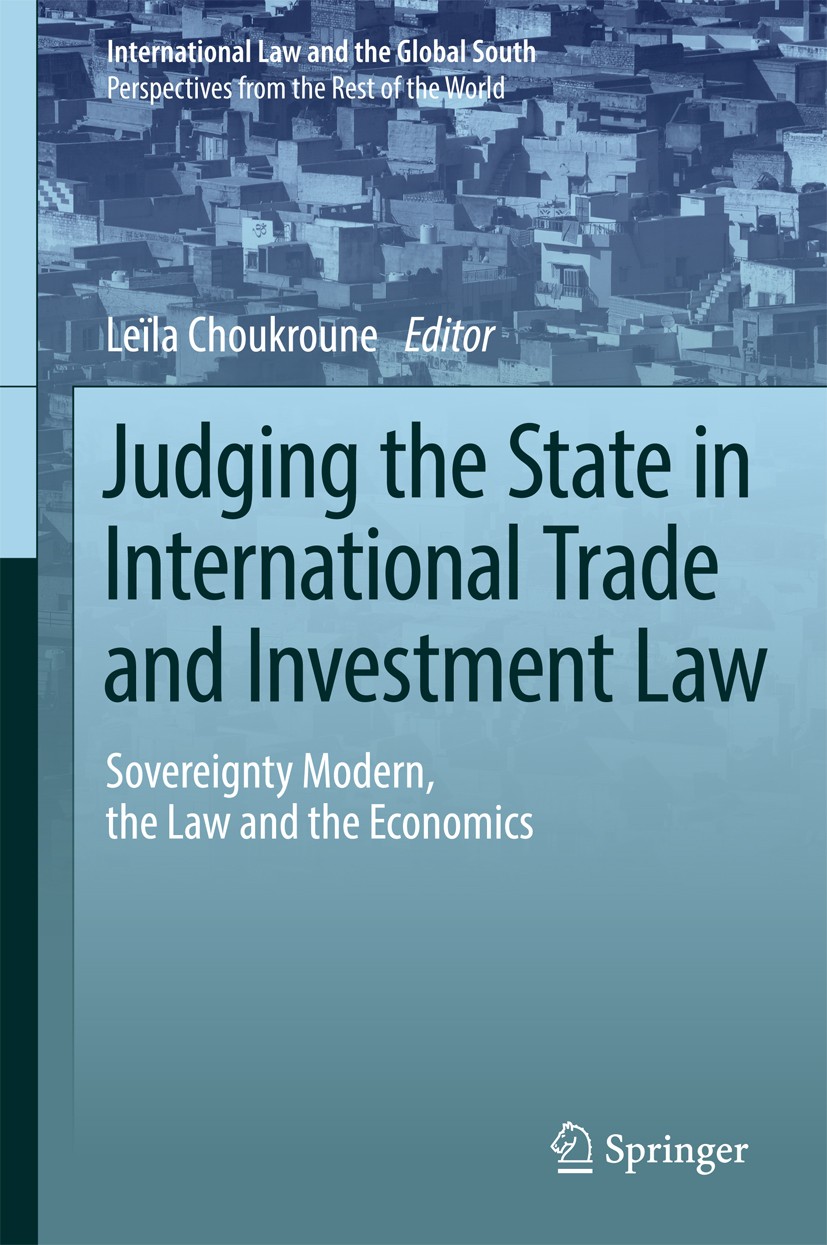| 书目名称 | Judging the State in International Trade and Investment Law |
| 副标题 | Sovereignty Modern, |
| 编辑 | Leïla Choukroune |
| 视频video | http://file.papertrans.cn/502/501387/501387.mp4 |
| 概述 | Provides readers with the latest developments on why, how and what for States are sued for breaches of their international trade and investment obligations.Covers recent case law and theoretical discu |
| 丛书名称 | International Law and the Global South |
| 图书封面 |  |
| 描述 | .This book addresses concerns with the international trade and investment dispute settlement systems from a statist perspective, at a time when multilateralism is deeply questioned by the forces of mega-regionalism and political and economic contestation. In covering recent case law and theoretical discussions, the book’s contributors analyze the particularities of statehood and the limitations of the dispute settlement systems to judge sovereign actors as autonomous regulators..From a democratic deficit coupled with a deficit of legitimacy in relation to the questionable professionalism, independence and impartiality of adjudicators to the lack of consistency of decisions challenging essential public policies, trade and investment disputes have proven controversial. These challenges call for a rethinking of .why, how and what for.,. .are. .States judged.Based on a “sovereignty modern” approach, which takes into account the latest evolutions of a globalized trade and investment law struggling to put people’s expectations at its core, the book provides a comprehensive framework and truly original perspective linking the various facets of “judicial activity” to the specific yet encom |
| 出版日期 | Book 2016 |
| 关键词 | BRICS; Disputes; International Law; Investment; State; Trade |
| 版次 | 1 |
| doi | https://doi.org/10.1007/978-981-10-2360-6 |
| isbn_softcover | 978-981-10-9597-9 |
| isbn_ebook | 978-981-10-2360-6Series ISSN 2510-1420 Series E-ISSN 2510-1439 |
| issn_series | 2510-1420 |
| copyright | Springer Nature Singapore Pte Ltd. 2016 |
 |Archiver|手机版|小黑屋|
派博传思国际
( 京公网安备110108008328)
GMT+8, 2026-1-19 12:21
|Archiver|手机版|小黑屋|
派博传思国际
( 京公网安备110108008328)
GMT+8, 2026-1-19 12:21


